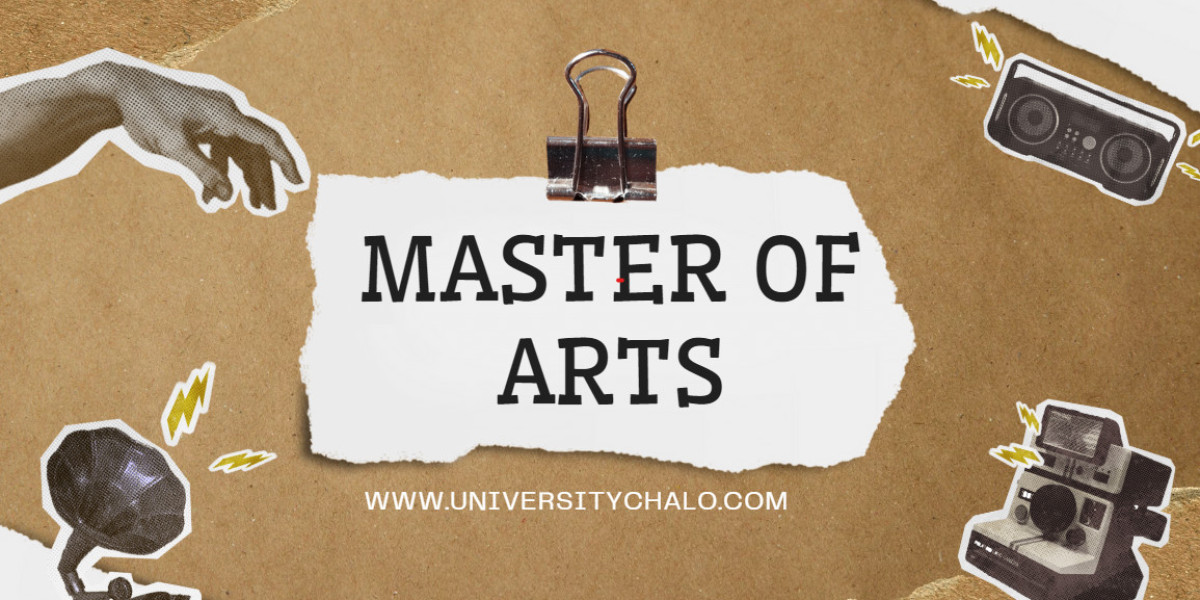The Master of Arts (MA) course is a highly rewarding path for those who wish to continue their journey in academia and engage deeply with their field of study. Whether you are aiming to refine your expertise, explore a subject in greater depth, or build a foundation for a PhD, the MA offers numerous opportunities. In this article, we will explore why an MA is a great choice for those interested in academia, providing you with insights into the benefits of pursuing this advanced course, and how it can help shape your academic and professional future.
The Power of a Master of Arts Degree
An MA full form stands for "Master of Arts," a graduate-level degree awarded after completing advanced studies in fields like humanities, social sciences, and some areas of science. Unlike technical or professional fields, an MA typically focuses on theoretical knowledge, critical thinking, research skills, and analytical abilities. These qualities are highly valued in academia, where deep understanding and the ability to contribute new ideas and research are paramount.
For students who are passionate about a specific subject and wish to delve deeper, the MA course provides an excellent platform for academic growth. Whether you’re interested in literature, history, philosophy, psychology, or social studies, the MA curriculum is designed to push you beyond the basics and encourage independent thought. It prepares students for a wide range of academic and research-based careers, including teaching, publishing, and other scholarly roles.
In-depth Knowledge and Specialization
One of the most significant advantages of pursuing a Master of Arts course is the opportunity to specialize. At the undergraduate level, students often take a broad approach to learning, covering many aspects of a subject. However, in an MA program, students can focus on a narrower area within their field of interest. For instance, a student pursuing an MA in History may choose to specialize in medieval history, modern political history, or the history of a particular region or country. This specialization allows for a much deeper understanding of the subject matter, which is crucial for those who want to engage with complex topics in academia.
Through specialized courses, research projects, and coursework, MA students are expected to engage critically with existing theories and develop their own understanding of the subject. This prepares them to make meaningful contributions to the field, whether through writing, teaching, or research.
Academic Skills Development
The MA full form—Master of Arts—points to a course that is all about developing strong academic skills. From extensive reading to independent research, students in MA programs are pushed to hone their abilities to analyze, evaluate, and synthesize information. These skills are not just valuable for academia, but also highly transferable to other professional fields such as journalism, public policy, and consulting.
In academia, the ability to conduct rigorous research is crucial. An MA course prepares students to design and execute research projects, analyze data, and present findings in a clear and scholarly manner. These research skills are valuable for those interested in becoming academics or researchers, as they form the backbone of most scholarly endeavors.
Pathway to a PhD
For many students, the Master of Arts course serves as a stepping stone to a PhD. The skills and knowledge gained during an MA program help students prepare for the demands of doctoral research. In fact, many PhD programs require applicants to have a master's degree, and the MA is often seen as a prerequisite for those wishing to pursue an academic career in the long term.
The MA course allows students to develop the necessary research and writing skills that will be invaluable for their doctoral studies. Additionally, students who have completed an MA often have a better idea of the direction they wish to take their research, which makes the transition to a PhD smoother.
Opportunities for Teaching
Another key benefit of completing a Master of Arts course is the opportunity to teach. Many MA graduates go on to teach at the high school or university level, depending on their area of study. In some fields, such as literature, history, and the social sciences, a master’s degree is the minimum qualification required to become a college or university professor.
Teaching is an ideal way for individuals to remain involved in academia while also making an impact on the next generation of students. The MA program often involves teaching assistantships or internships, which give students hands-on experience in the classroom and help them develop teaching skills.
Enhanced Career Prospects
While an MA is often considered a pathway to academia, it also offers valuable opportunities outside of the academic world. Many industries value the skills that MA graduates bring, such as critical thinking, problem-solving, research, and communication. Graduates with an MA can find career opportunities in publishing, nonprofit organizations, government, research institutions, and more.
Additionally, an MA often provides graduates with a higher earning potential compared to those with only a bachelor’s degree. Many students pursue an MA to increase their career opportunities, whether in academia or the private sector.
Networking and Mentorship
One of the less tangible but highly valuable aspects of pursuing an MA is the opportunity to build a professional network. Throughout the course, students engage with professors, fellow students, and guest speakers, all of whom can become valuable resources in the future. The relationships built during an MA course often extend beyond graduation, providing students with mentorship and guidance as they move forward in their careers.
Additionally, many universities have strong alumni networks that can open doors for students in academia and beyond. Networking is essential for academic careers, where collaborations and partnerships often play a central role in advancing research and scholarship.
Flexible Learning Options
Another benefit of the Master of Arts (MA) course is the flexibility it offers. Many universities now offer part-time, online, or hybrid learning options for MA students. This flexibility allows students to pursue their degree while maintaining work or personal commitments. For those who wish to remain in the workforce while continuing their education, this is an attractive option.
Some programs also offer evening or weekend classes, making it easier for students to balance their academic, professional, and personal lives. This flexibility ensures that more people can access higher education and pursue their academic goals, even if they have other responsibilities.
Conclusion
The Master of Arts (MA) course is an excellent choice for those interested in academia. It offers opportunities for specialization, skills development, teaching, and research—all of which are highly valued in the academic world. The MA provides a solid foundation for those looking to pursue a PhD or a career in academia, while also offering valuable skills for various non-academic careers. Whether you wish to become a professor, researcher, or writer, an MA equips you with the tools you need to succeed.
Frequently Asked Questions (FAQs)
What is the MA full form? The MA full form stands for Master of Arts. It is a graduate-level degree in fields such as humanities, social sciences, and arts.
Is an MA degree required to become a professor? An MA degree is often required to teach at the college or university level, particularly in fields like literature, history, and social sciences.
Can I pursue a PhD after completing an MA? Yes, many students pursue a PhD after completing an MA. The skills and knowledge gained during an MA provide a solid foundation for doctoral research.
What career opportunities are available after completing an MA? After completing an MA, graduates can pursue careers in academia, publishing, research, non-profit organizations, government, and more.
Is it possible to work while pursuing an MA? Yes, many universities offer part-time, online, or flexible MA programs that allow students to work while studying.



